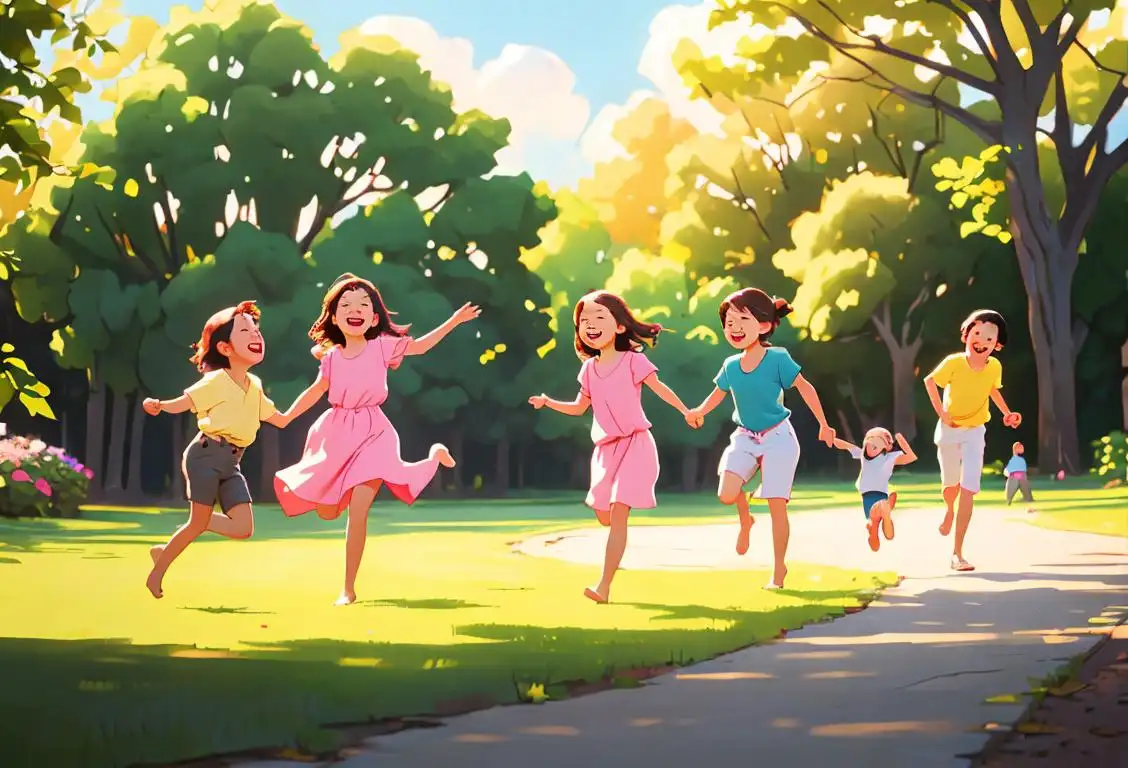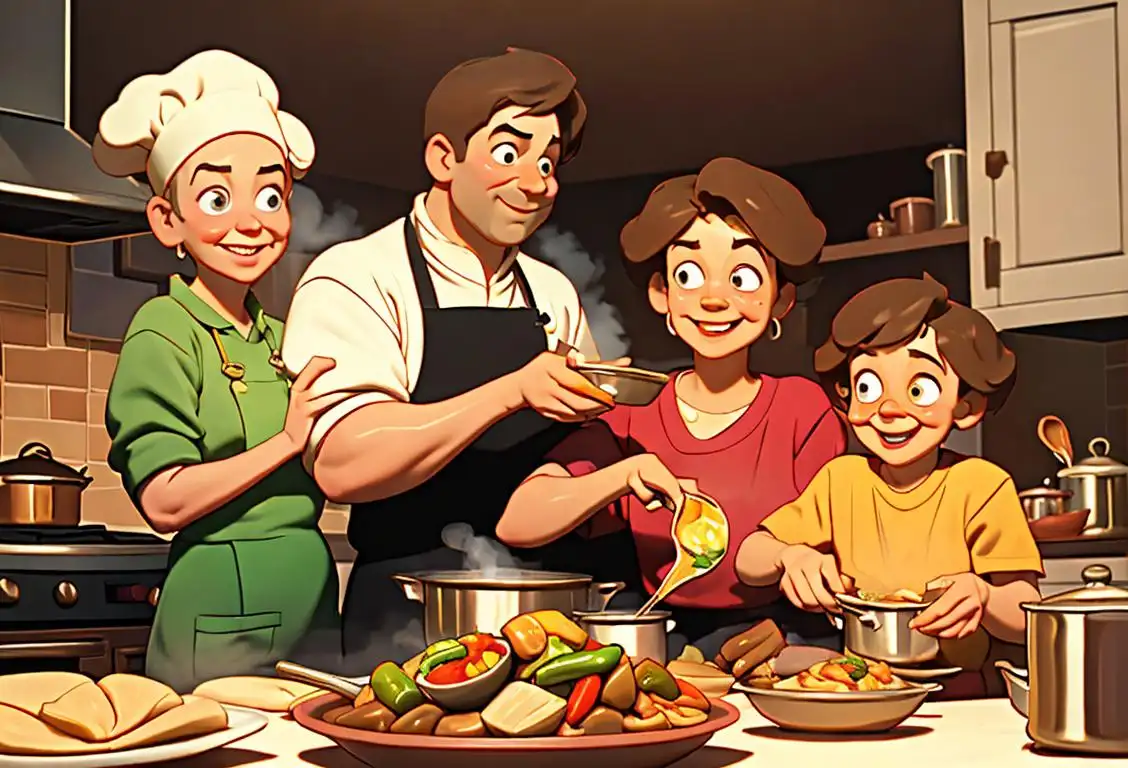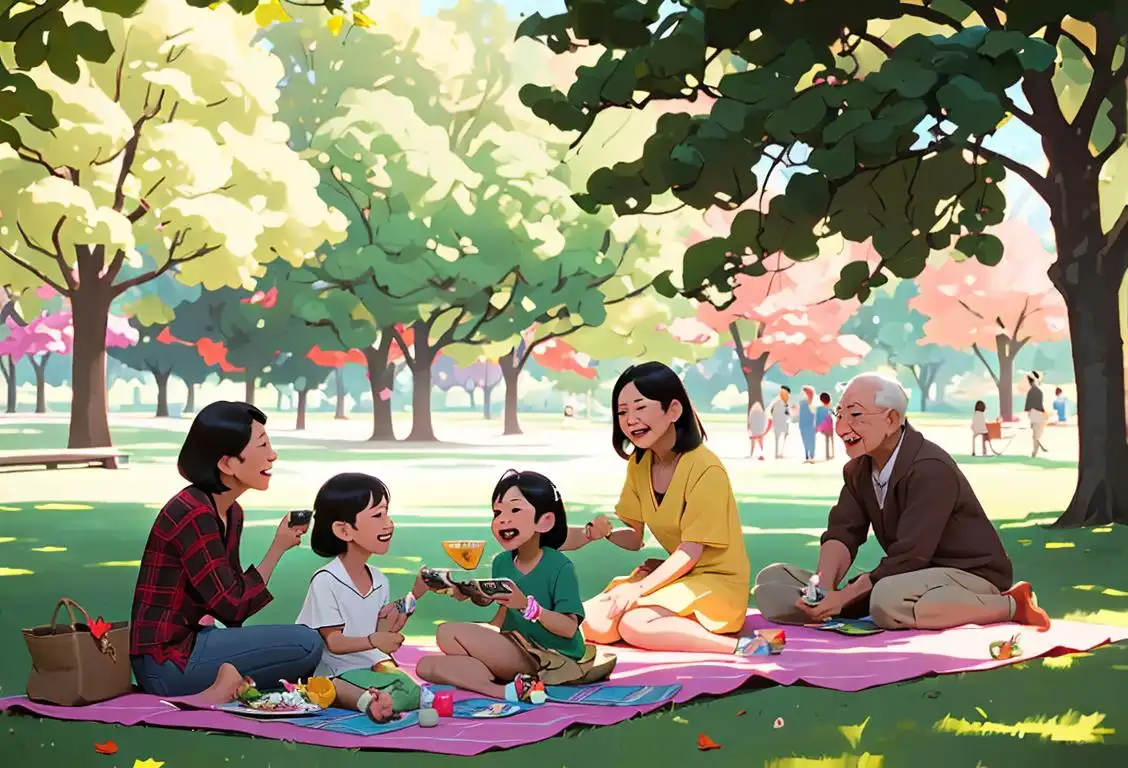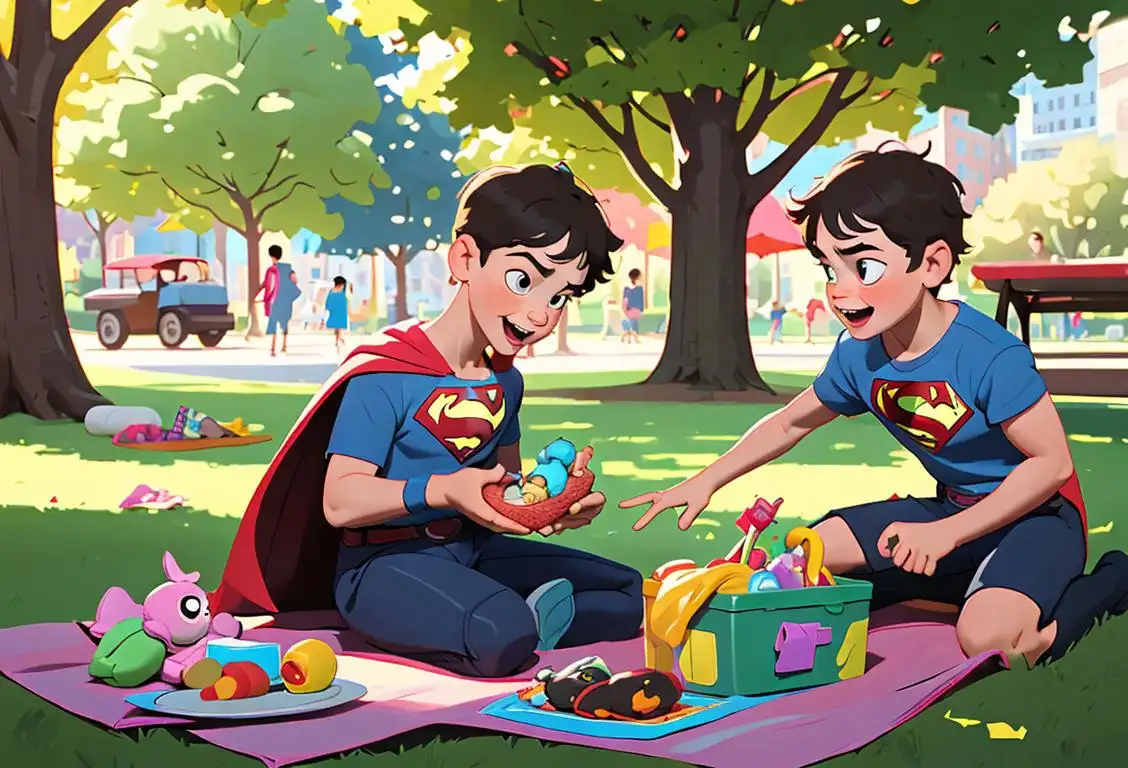National Cousin Day

Hello there, cousin enthusiasts! Get ready to celebrate the magical bond of cousins on National Cousin Day. Whether you grew up sharing secrets and adventures or reconnect later in life, this is the perfect day to show your appreciation for those family members who are both friends and relatives. Let's dive into the fun and fascinating history of this special day!
When is Cousin Day?
It's national cousin day on the 24th July.
The Origin of National Cousin Day
National Cousin Day originated in the depths of the internet, where people wanted to celebrate the unique relationship they have with their cousins. It was first mentioned online back on July 24, 2015, and since then, it has gained popularity, with over 1910 mentions across various social media platforms.
Why Cousins Deserve a Day of Their Own
Cousins are like a bouquet of flowers in the garden of family. They're the ones who have seen you at your worst and your best, the ones who share inside jokes and childhood memories. They're the partners-in-crime during family gatherings and the ones who truly understand your family dynamics. National Cousin Day is a way to acknowledge and honor this special bond.
Celebrating National Cousin Day
There are many ways to celebrate National Cousin Day. You can organize a family reunion or a cousin get-together, reminiscing about the good old days and creating new memories together. Maybe have a cousin-themed movie night or game night. Or if you're feeling nostalgic, pull out the old family photo albums and take a trip down memory lane.
Did You Know?
In Victorian England, it was common for cousins to get married. Queen Victoria herself married her first cousin, Prince Albert, and they had nine children together. Hey, they say love knows no bounds, right?
History behind the term 'Cousin'
12th century
Etymological Roots
The term 'cousin' originates from the Old French word 'cosin', which means 'relative' or 'kinsman'. It was derived from the Latin word 'consobrinus', which referred to a 'mother's sister's child'. This term gradually evolved and became widely used to describe relations more broadly.
14th century
Expanding the Meaning
During the 14th century, the term 'cousin' expanded to include various degrees of kinship. It came to represent not only the child of one's aunt or uncle but also the child of one's cousin, creating a broader understanding of familial relationships within extended families.
17th century
Royal Lineage
In the 17th century, the concept of royal lineage and bloodlines became intertwined with the term 'cousin'. It was common for European royalty to marry cousins to preserve their lineage. This resulted in the development of complex family trees, where different types of cousins were distinguished, such as first cousins, second cousins, and so on.
19th century
Cousin Marriage Controversies
The 19th century witnessed debates and controversies surrounding cousin marriage. Researchers and social commentators voiced concerns about the potential health risks associated with close familial unions. This led to legal restrictions or societal taboos against marrying close relatives in certain cultures.
20th century
Cousin Connections in Pop Culture
In the 20th century, the term 'cousin' gained popularity in popular culture as a way to connect characters and storylines. In films, television shows, and literature, cousins often play important roles, whether it be as allies, rivals, or love interests. This cultural prominence has further reinforced the concept of cousins as significant relatives.
21st century
Globalized Family Networks
With the rise of globalization and increased migration, the term 'cousin' continues to evolve and adapt. Modern society's interconnectedness has created complex family networks across different countries and cultures. Cousins now have the opportunity to form personal relationships that transcend borders, emphasizing the universality and cultural diversity of cousinhood.
Did you know?
In Victorian England, it was common for cousins to get married. Queen Victoria herself married her first cousin, Prince Albert.Tagged
fun loved ones familyFirst identified
11th April 2015Most mentioned on
24th July 2015Total mentions
1910Other days
Pay Back Your Parents Day
Siblings Sibling Day
Auntie Day
Gumbo Day
Aunt And Uncle Day
Visit Your Relatives Day
Cousin Day
Fam Day
Cocoa Day
Men Babysit Their Kids Day








